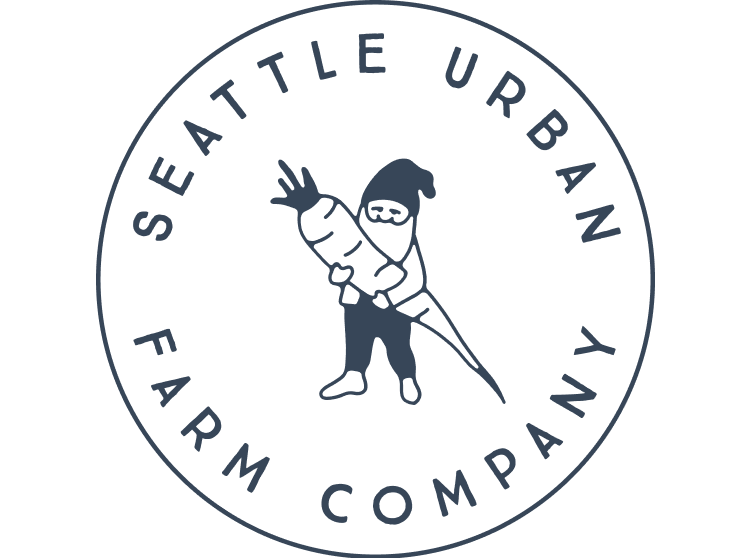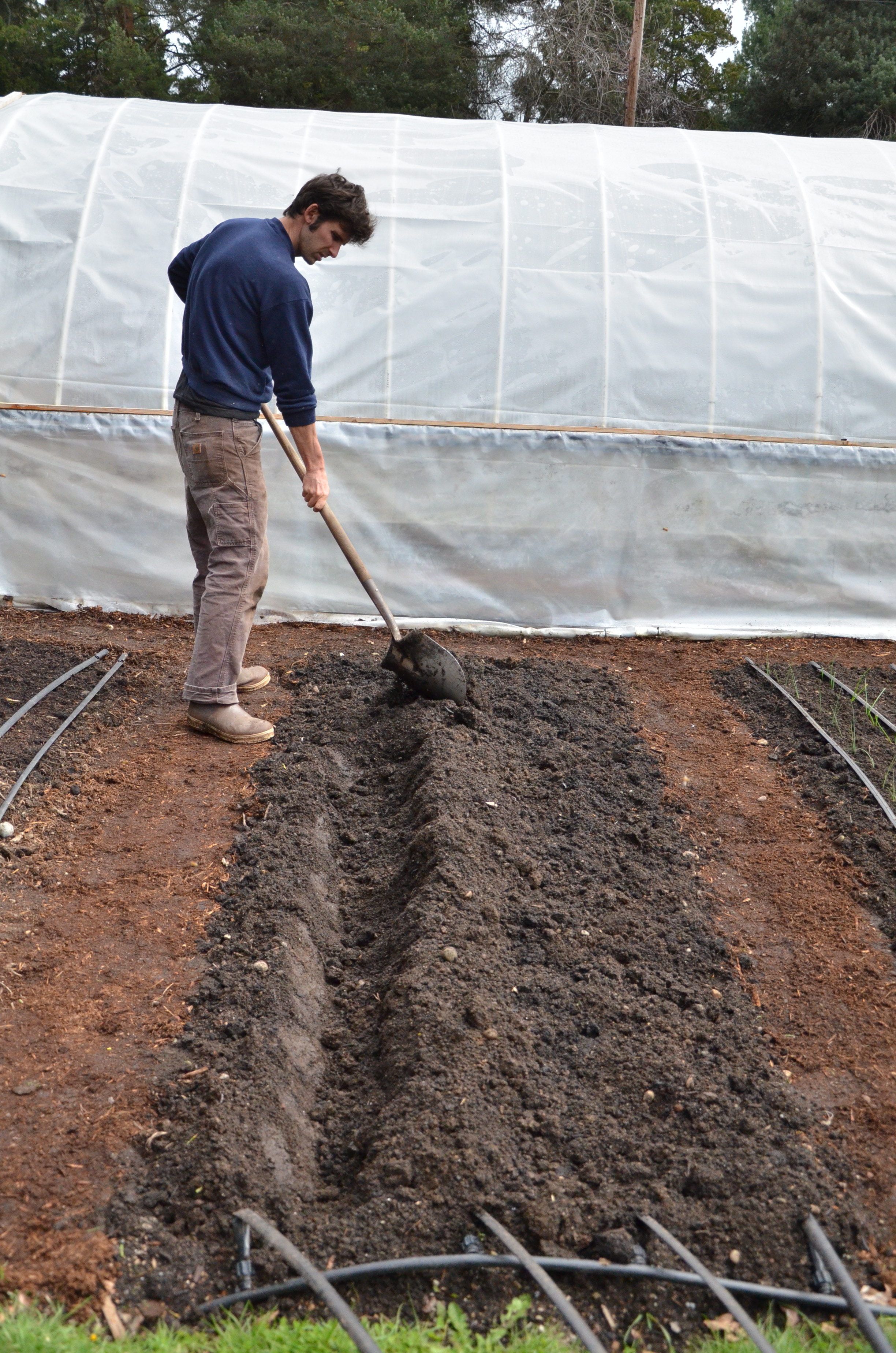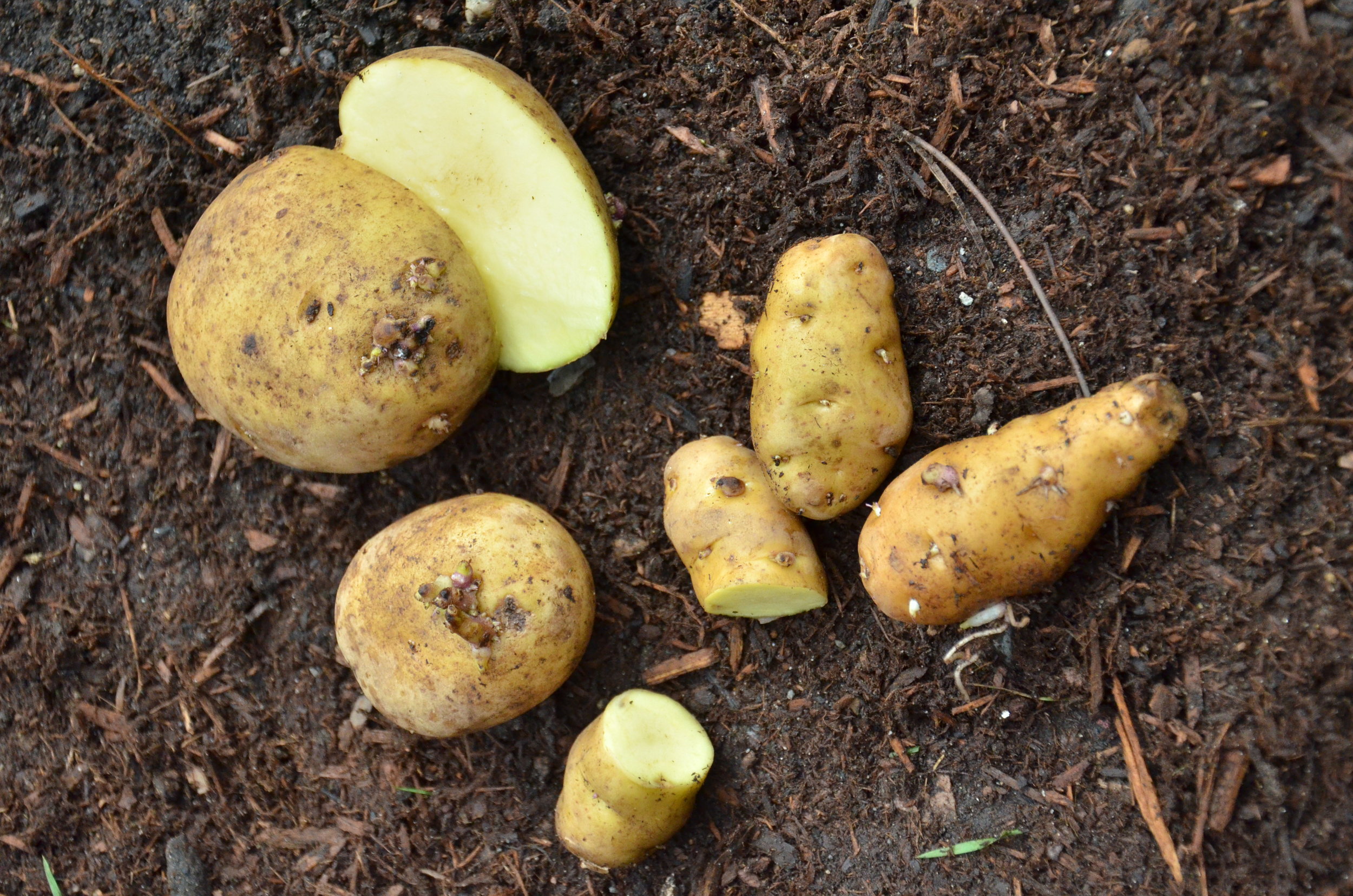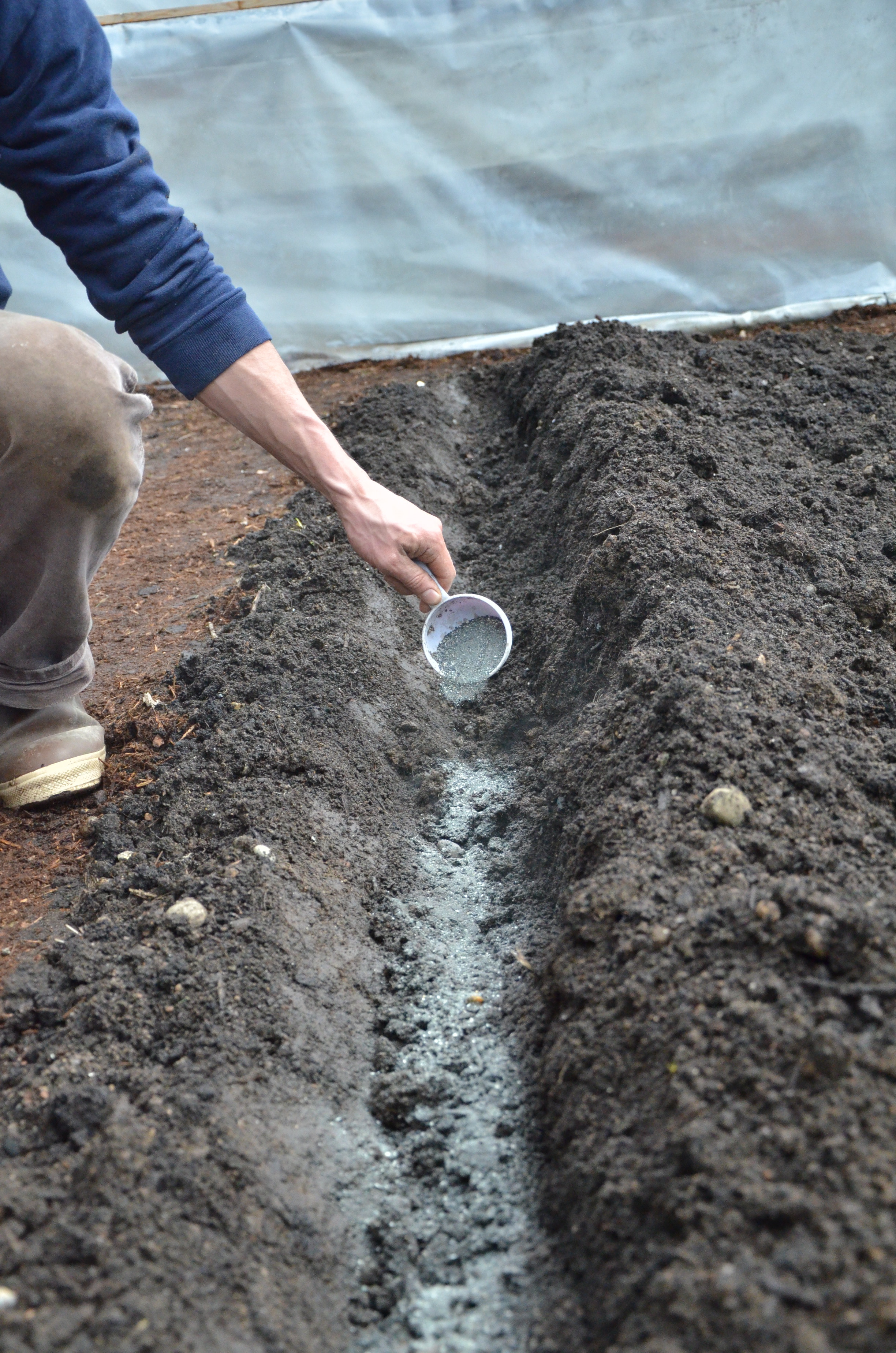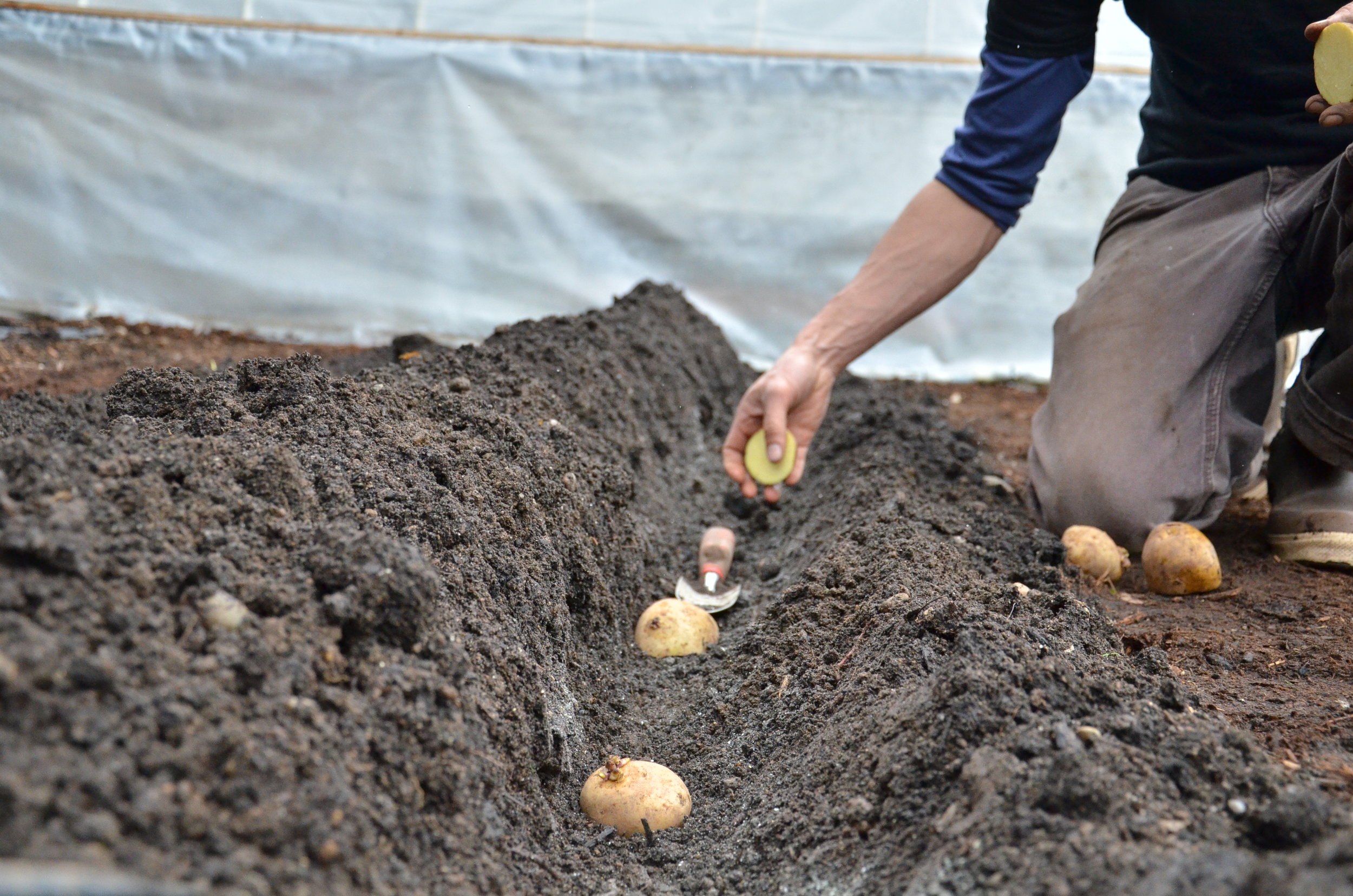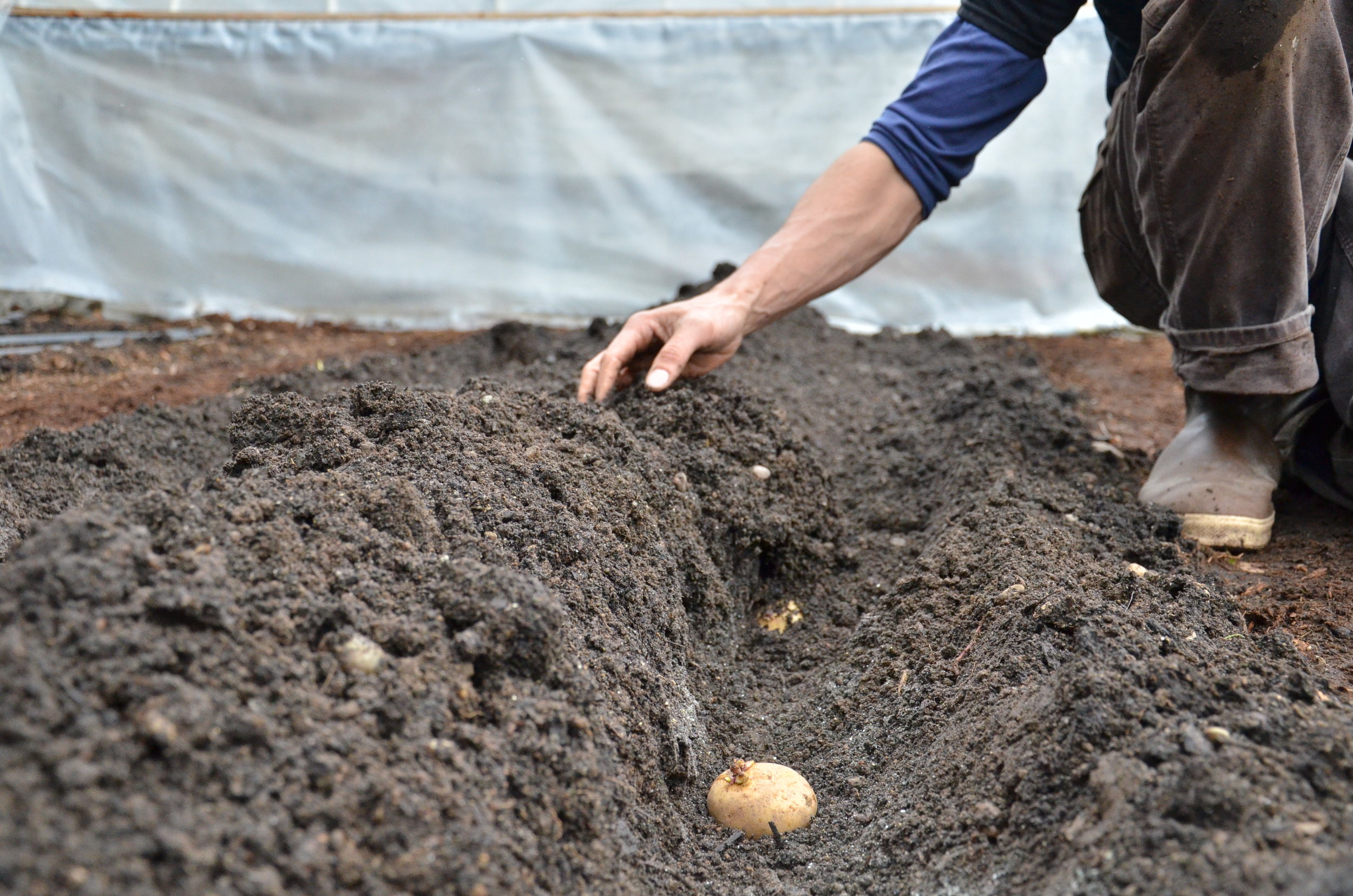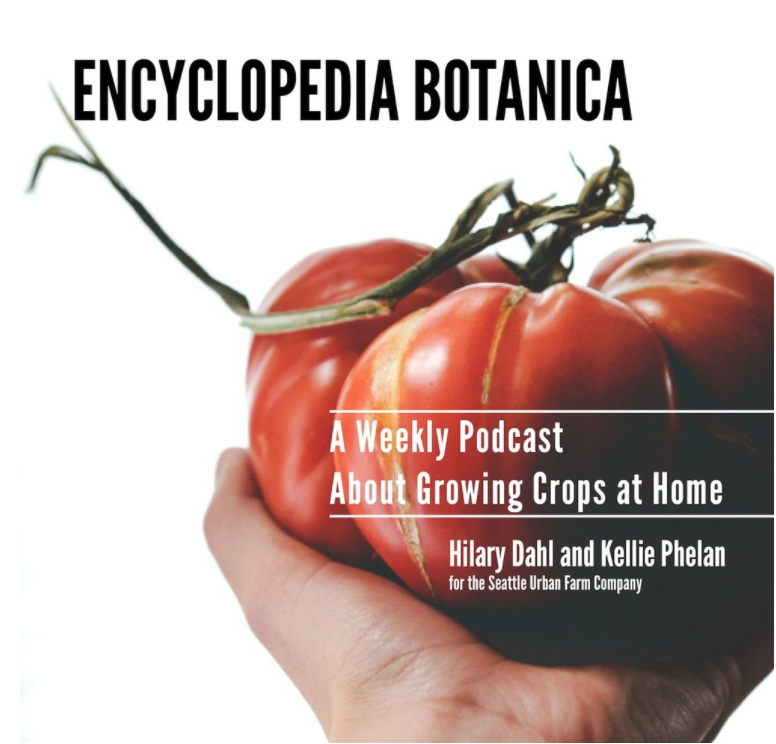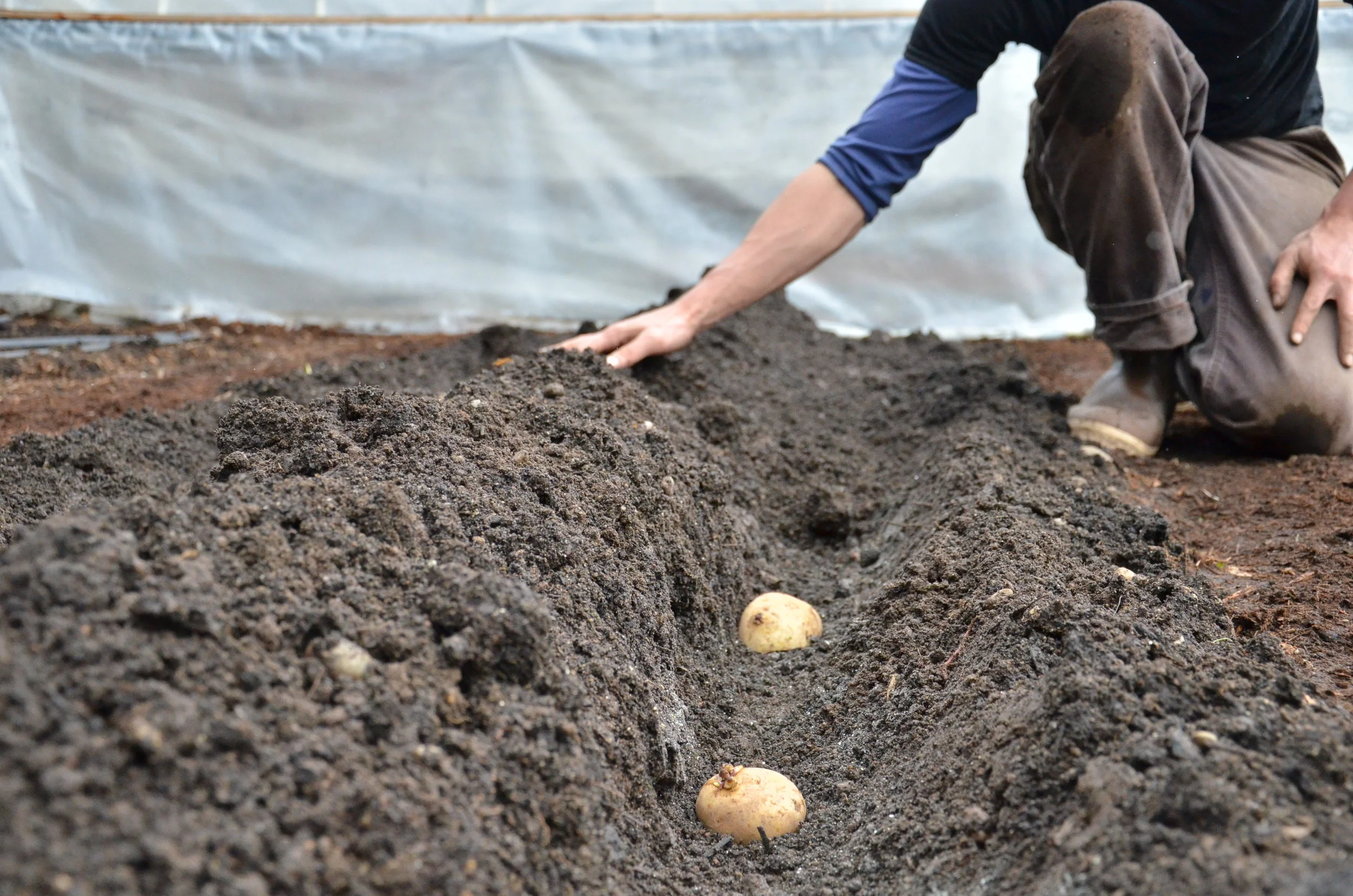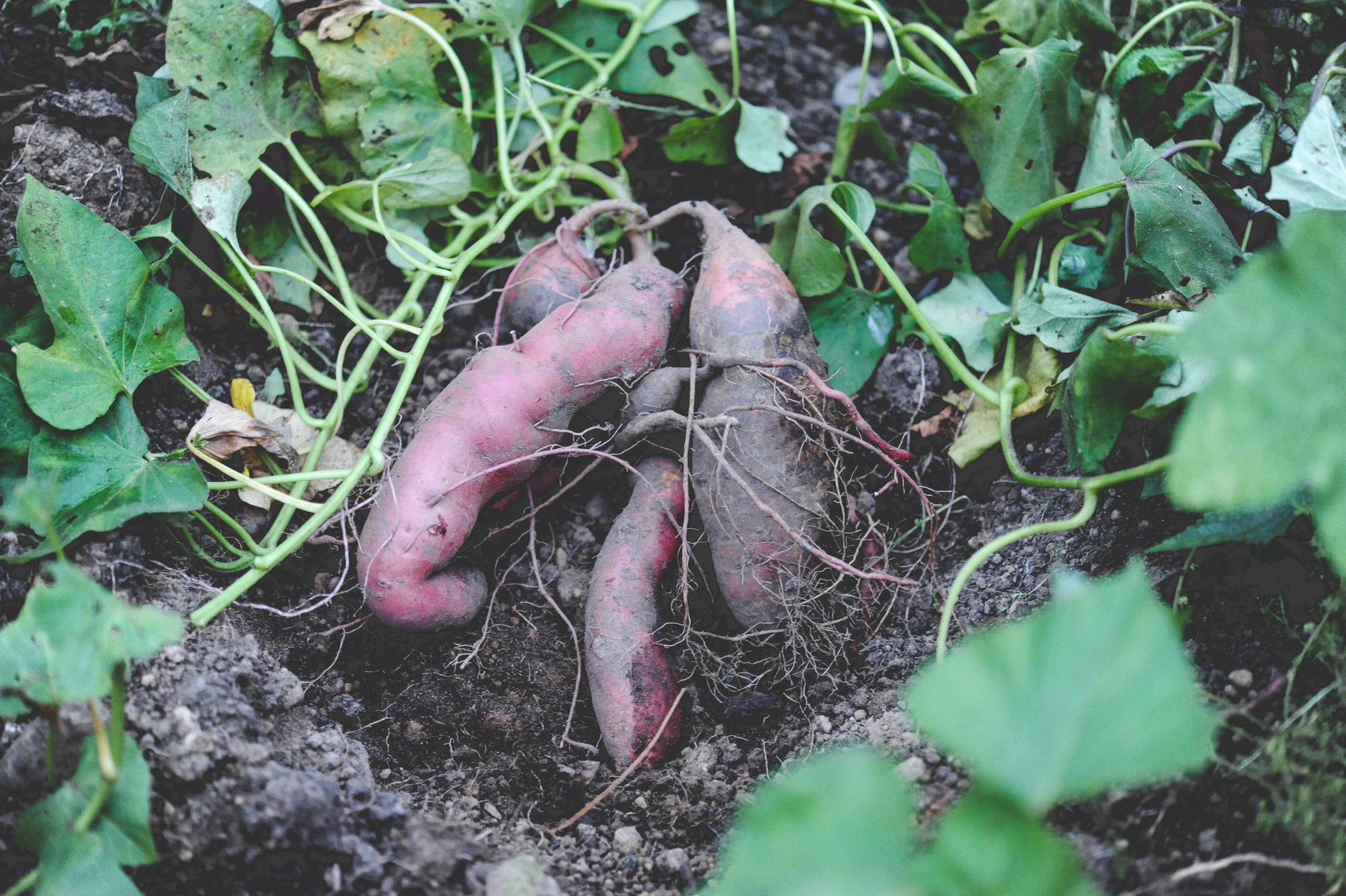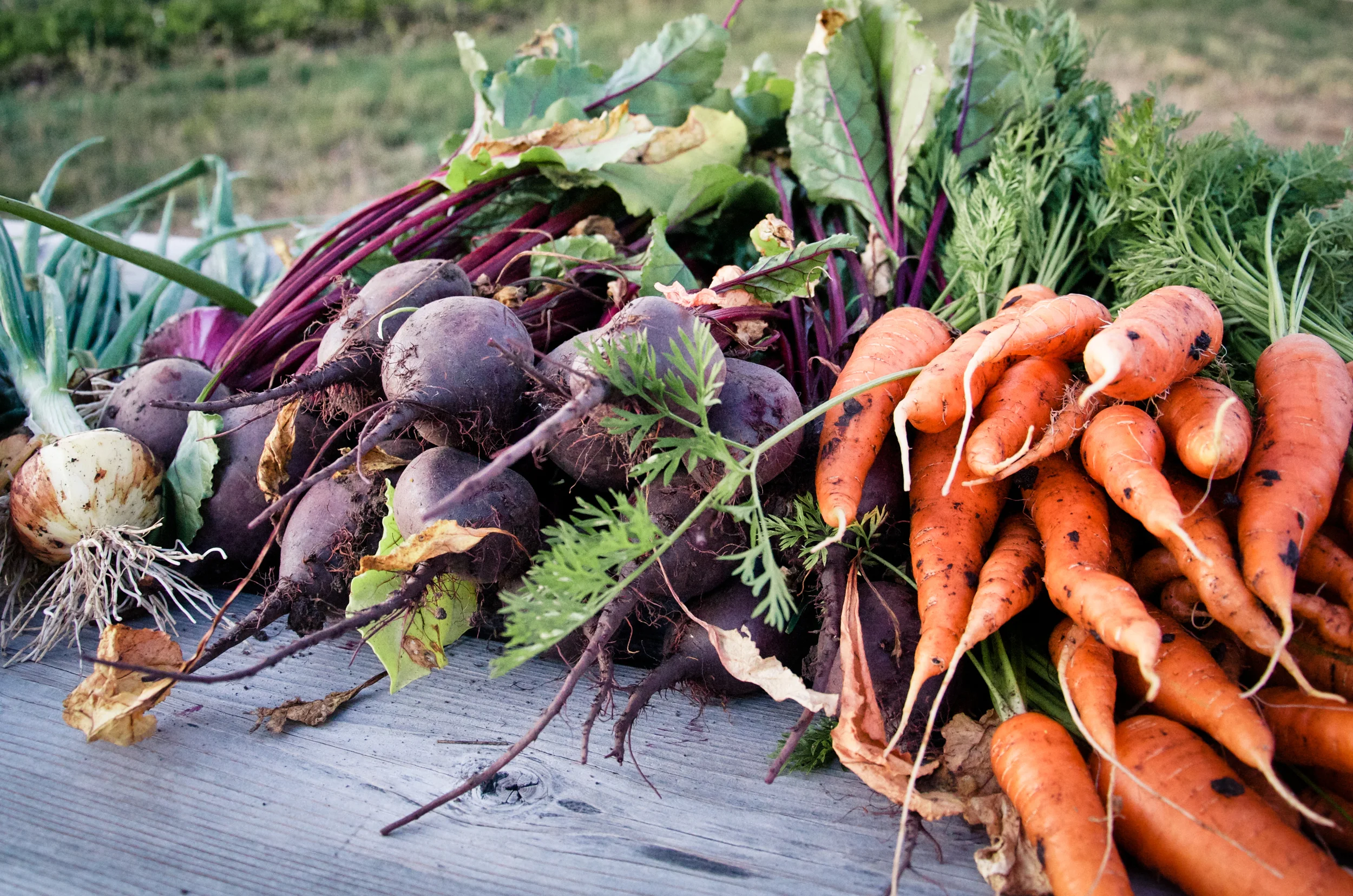St. Patrick’s Day is the obvious time to give yearly praise and reflection about the wonders of potatoes. Mid-March is a great time to start planting your potatoes and although it was originally cultivated in South America, the crop will always be inextricably associated with Ireland because of the Great Potato Famine. I’m lucky enough to have Irish heritage on both sides of my family, but unlucky enough to have grown up with a disinclination towards potatoes. Nobody wants to be the Irish kid who doesn’t like potatoes. It’s not an exaggeration to say that I spent countless nights at the dinner table agonizing over a few spoonfuls of mashed potatoes (eating at a rate of 1 tablespoon per hour, usually gagging and falling out of my chair as needed).
Years later, potatoes played a pivotal role in my development as a gardener. I remember very clearly the first time I harvested potatoes. I was living at The Homestead and had only been helping out in the garden for a few months, so I had a limited idea of what was going on out there. It was late fall, cold and there was snow on the ground. Harvesting from the garden had virtually ceased during the past few months so I was a bit surprised when it was decreed that I should go out to the garden and dig up some potatoes for dinner. The sun was setting, I was kneeling in the snow and I’ll be damned if there weren’t bushels of potatoes underground just waiting for me. I am sure that I was inebriated to begin with, but now I was truly high on life. I suppose it was a combination of the beauty of the garden, the prospect of eating a freshly picked crop and the audacity of the tubers to keep outside under the soil for so many months after the top growth had died away. I ate at least a few tablespoons of potatoes that night and have loved them ever since.
I look forward to potato planting every year. It is one of the first crops we plant in the spring, you really feel like you are doing something useful when burying the big chunks of “seed potatoes”, and if you haven’t done so already, it forces you to finish planning out your garden for the season.
This year we are planting a few different varieties to make sure we satisfy the need for yellow, red, blue and fingerling types.
To Plant:
The process of planting and growing potatoes is relatively easy. Potatoes are almost always grown from parts of the tubers themselves. You can buy “seed potatoes” from a plant nursery or buy organic potatoes from the store to use as seed. Once you have your seed:
1. Cut them into pieces that are about the size of a golf ball and be careful to make sure that each piece has at least 1-2 eyes on it.
2. Dig an 8” deep trench.
3. Add about ¼ cup balanced organic fertilizer to the trench for every piece of potato that you are planning to plant and mix it in with a trowel.
4. Place the pieces of potato every 12” in the trench, making sure the eyes are facing up.
5. Cover potatoes with about 4 inches of soil, leaving the remaining soil in a neat dam to the side of the trench so that it can be added to the trench later as the potatoes start to grow.
Each plant will yield 1-3 lbs of potatoes.
In addition to being delicious, potatoes are a great source of vegetable protein, vitamin C, B vitamins, copper, iron, and potassium.
